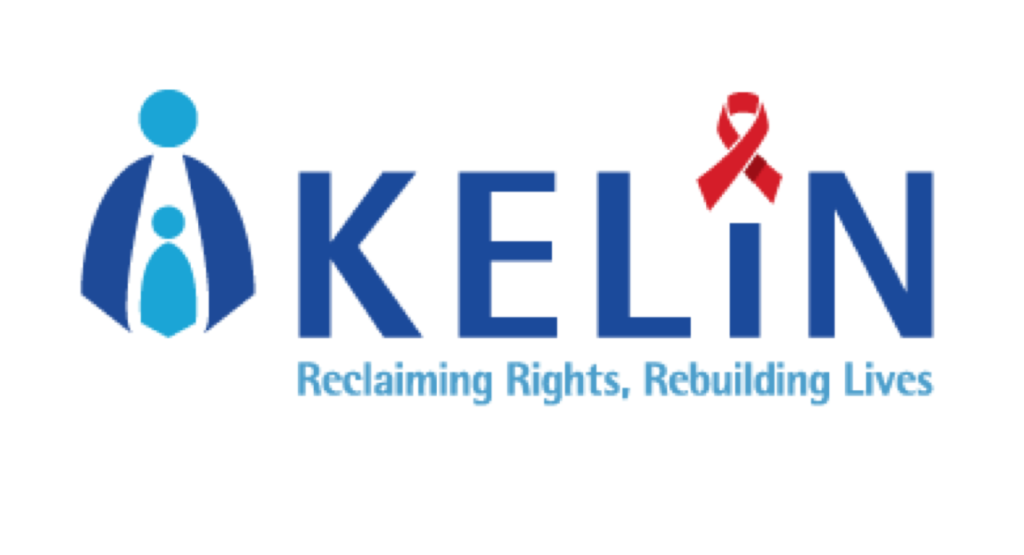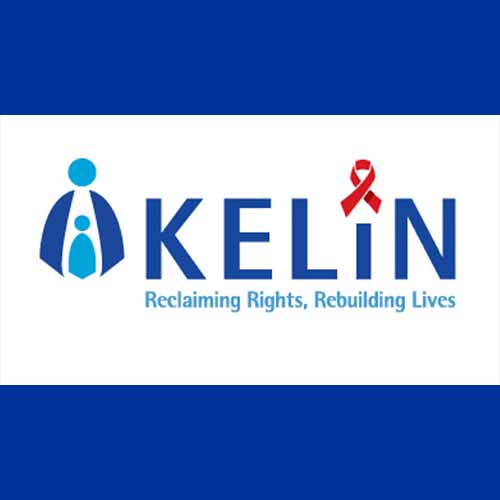TITLE: DIGITAL INNOVATION, TECHNOLOGIES AND THE RIGHT TO HEALTH AFRICA
Imagine a world where the power of digital innovation shapes the very soul of healthcare and human rights in Africa!
The Kenya Legal and Ethical Issues Network on HIV and AIDS (KELIN) would like to bring to the attention of the Commission a recent thematic report by the UN Special Rapporteur on the right of everyone to the enjoyment of the highest attainable standard of physical and mental health, Dr. Tlaleng Mofokeng. The report is titled Digital innovation, technologies and the right to health and can be accessed here: A/HRC/53/65: Digital innovation, technologies and the right to health | OHCHR.
KELIN is happy to inform the Commission that it collaborated with other civil society organizations including STOPAIDS and GNP+ to mobilize young people and vulnerable communities to provide input towards this report.
KELIN hails the UN Special Rapporteur for this timely report and would now wish to draw the attention of the Commission to the findings and recommendations from the report.
From the onset, we would like the Commission to take note of the fact that the COVID-19 pandemic accelerated the move towards digital health and use of artificial intelligence (AI) and digital systems to enhance access to healthcare services. Tracking applications, information sharing platforms, telemedicine and more have sparked a boom in digital health. These technologies have the potential to transform weak health systems. However, in most countries they are rolled out without a clear legal or other normative framework (norms, standards and practices that provide a framework for how rights are perceived or protected) to guarantee the protection of human rights. It is in this context that we invite the Commission to take interest in this and lead in guiding States towards an appropriate normative framework.
In her report, the Special Rapporteur, highlights that rapid advancements in technology have the potential to revolutionize healthcare accessibility and quality while simultaneously posing risks to fundamental human rights. And that it is imperative that we harness the benefits of digital innovation while safeguarding the rights and dignity of all individuals, especially in marginalized communities.
Technological Innovation and the Right to Health
The Special Rapporteur notes that digital innovation has opened new horizons in healthcare, particularly in low- and middle-income countries in Africa. Remote care and digital technologies have the power to bridge the gap in healthcare access, reducing the need for physical assessments and addressing challenges like the brain drain of medical professionals. One striking example was India’s real-time vaccine supply monitoring during the COVID-19 pandemic, which helped ensure timely vaccine distribution.
The Special Rapporteur further established that the global digital divide remains a pressing concern. She underscores socioeconomic inequalities and disparities in access to digital resources across countries, genders, generations, social groups, education levels, rural areas, visually impaired individuals, older adults, and ethnic minorities. To truly harness the potential of digital health, she emphasizes that we must address these disparities systematically and ensure that the benefits are inclusive and accessible to all.
Non-Discrimination and Accessibility
The Special Rapporteur notes that digital health, including telemedicine, holds great promise in enhancing accessibility for disabled individuals and hard-to-reach groups. Yet, it is essential to recognize that not all marginalized groups benefit equally from these innovations. Poor, disadvantaged, women, older persons, and people with disabilities may still face barriers to access. For example, low digital literacy among older persons, power dynamics, and cognitive impairments can limit their ability to utilize digital health services effectively.
She stresses that, digital technologies must be implemented with utmost care to avoid exacerbating existing inequalities. For instance, while digital technologies can offer opportunities for children in disadvantaged or remote communities to access healthcare information, they also introduce risks, such as increased child sexual abuse and exploitation. Robust regulation, as recommended by UNESCO, is necessary to ensure the safety and effectiveness of these technologies.
Economic and Information Accessibility
The rapporteur reports that digital technologies, including mobile phones, have the potential to reduce economic barriers to healthcare by enabling remote care and lowering costs associated with clinic visits and travel. However, it is crucial to address gender disparities, particularly women’s lower economic status, which may limit their access to essential hardware like smartphones.
Information accessibility is another vital aspect of digital health. While digital technologies can empower young people to access health information anonymously, confidentiality must be maintained, especially in cases of criminalization or stigmatization. She calls upon governments to play a proactive role in conducting information campaigns and promoting digital education to protect health rights and access to information.
Quality of Digital Health Services
In the report, the Special Rapporteur established that digital technologies have shown remarkable potential in revolutionizing healthcare through data analysis, prediction, forecasting, and drug development. However, she states that their application in practice must be consistent, and quality must be ensured. The Special Rapporteur’s call for non-discrimination principles in medical diagnostics and Artificial Intelligence tools is well-founded. The COVID-19 pandemic has exposed the need for rigorous evidence, privacy safeguards, disease detection accuracy, and public trust in digital contact tracing.
Digital Innovation and Sexual and Reproductive Health Rights
In her report, the Rapporteur notes that digital technologies have played a significant role in advancing sexual and reproductive health rights, empowering women and marginalized groups. During the COVID-19 pandemic, digital communication platforms expanded access to telemedicine and self-managed abortion, effectively overcoming stigma and taboos.
However, these innovations also come with risks, including surveillance, harassment, intimidation, and violence. Intrusive data collection without consent violates women’s privacy rights and can discourage them from seeking healthcare services. HIV molecular surveillance raises human rights concerns, and the private ownership of genomic data intensifies the risk of online and offline stigma.
Digital Innovation, Technologies, and Privacy
We see in her report that while digital transformation has the potential to promote the right to health by improving data-driven decision-making, accountability for Sustainable Development Goals, and resource allocation, it also poses significant risks to privacy and security. State regulation and user consent for data collection and storage are essential to mitigate these risks.
The protection of health data in the digital realm is a pressing concern, particularly for marginalized groups. Without robust safeguards, these groups can be vulnerable to criminalization, stigma, discrimination, and violence. Inequities persist, with poor and minority racial and ethnic communities disproportionately targeted for harsher punishments. We must address these issues through rigorous privacy protections and legal frameworks.
Conclusion and Recommendations
The Special Rapporteur concludes in her report stating that, digital innovation, and technology present both opportunities and challenges for healthcare and human rights in Africa. To harness these benefits while safeguarding fundamental rights, we must:
- Invest in data literacy, digital public goods, and open-source software while establishing robust policy frameworks.
- Address patriarchal control and trust issues to ensure that technology aids sexual and reproductive health decisions for women and girls.
- Rectify historical biases in healthcare coding and AI to ensure data visibility for marginalized groups.
- Develop regulatory environments that promote inclusivity, accountability, and transparency in digital health.
- Strengthen global, regional, and national regulation of digital health, focusing on data protection, inclusive governance, digital literacy, human rights approaches, and youth-friendly healthcare.
- Uphold health rights through international human rights legal obligations, public investment, trust-building, and impact assessments.
- Establish a transnational code for private ownership, data extraction, and databanks to promote equality, non-discrimination, transparency, and accountability in digital innovation and technologies.
As custodians of the African Charter of Human and Peoples’ Rights, we urge the ACHPR to embrace its pivotal role. Article 16, a beacon of hope, guarantees the right to the highest attainable standard of health. Let us rise to the challenge and lead in establishing normative frameworks to:
- Promote Digital Inclusivity: Bridge the digital divide, leaving no one behind on the path to healthcare access.
- Protect Data Privacy and Security: Fortify defenses against data breaches, ensuring citizens’ trust in digital healthcare.
- Monitor and Report: Shine a relentless light on progress, setbacks, and inequalities to steer us toward a healthier, more just Africa.
- Engage Civil Society: Harness the power of collective voices in shaping policies that nurture the convergence of innovation and compassion.

